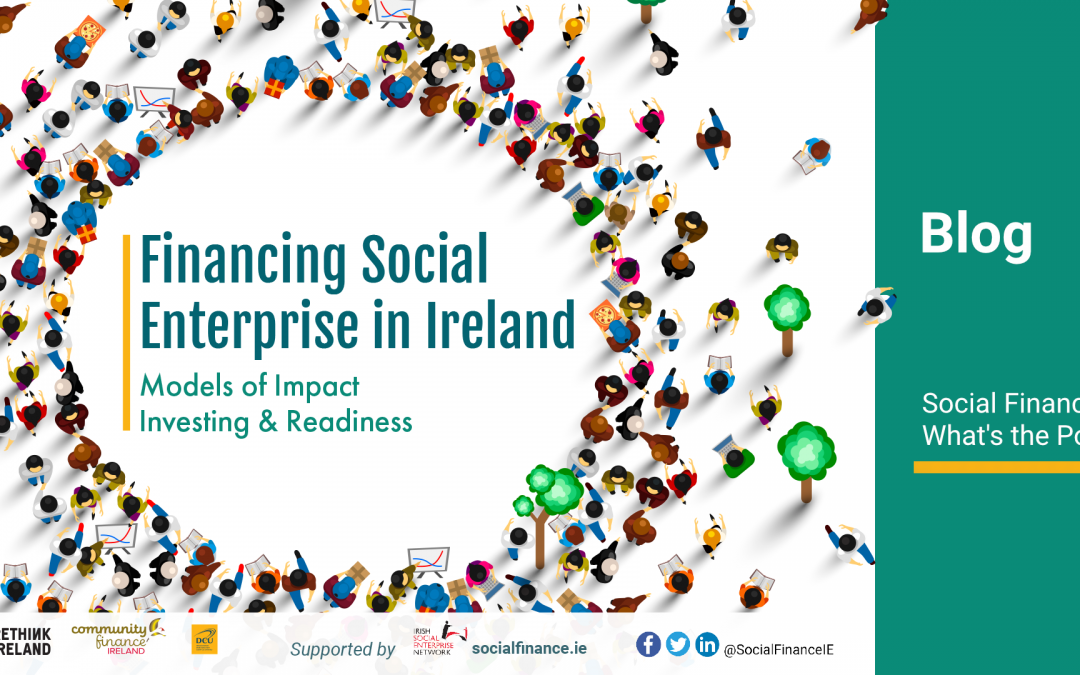The ambition of all within the Social Economy is to encourage sustainability and reduce levels of dependency, where possible, on the uncontrollable, whatever guise it might take.
The CVSE (Community, Voluntary and Social Enterprise) sector owes a great deal to the availability of charitable support, as well as start-up and development grants from various quarters. Much of the Community & Voluntary subset will no doubt always be reliant on continued grant support to maintain the level of service provision. But what of the rest of the sector involved in growing the earned income side of their Social Enterprise?
Social Enterprise will usually need debt finance at some point, to draw down retrospective grant support, for property acquisition, development, refinance personal debt, or manage existing unsustainable borrowings where immediate demands on repayment are a real threat.
The volunteer led ethos implies to the conventional debt system that there exists at least a reduced, if not total, absence of financial vested interest in the project.
The absence of collateral of any marketable value, often requires volunteers to sign personal guarantees in order to access this debt. A community manager pledging their home as security on a bank loan has been as bad as we have seen. That the voluntary board allowed the situation to arise is a whole other matter.
Social Finance is the incubator for the community sector on the road to achieving experience in borrowing and developing a credit score, but on terms & conditions appropriate to that market. It does not request personal guarantees from volunteers (or staff!), and normally does not charge arrangement fees. Its priorities are simply:
- Firstly, find a way to make finance available to a Social Enterprise
- Secondly, have the finance repaid in full
- And finally, derive interest income from the loan to cover its “cost to serve”, and mitigate potential losses across a portfolio
Presently in Ireland (2022), social finance up to a general limit of €500k is available to the CVSE sector absent arrangement fees and personal guarantees, yet recent survey findings would suggest that much of the sector remains unaware of the support, with over 50% financed by conventional banking instruments such as overdrafts and secured borrowings.
